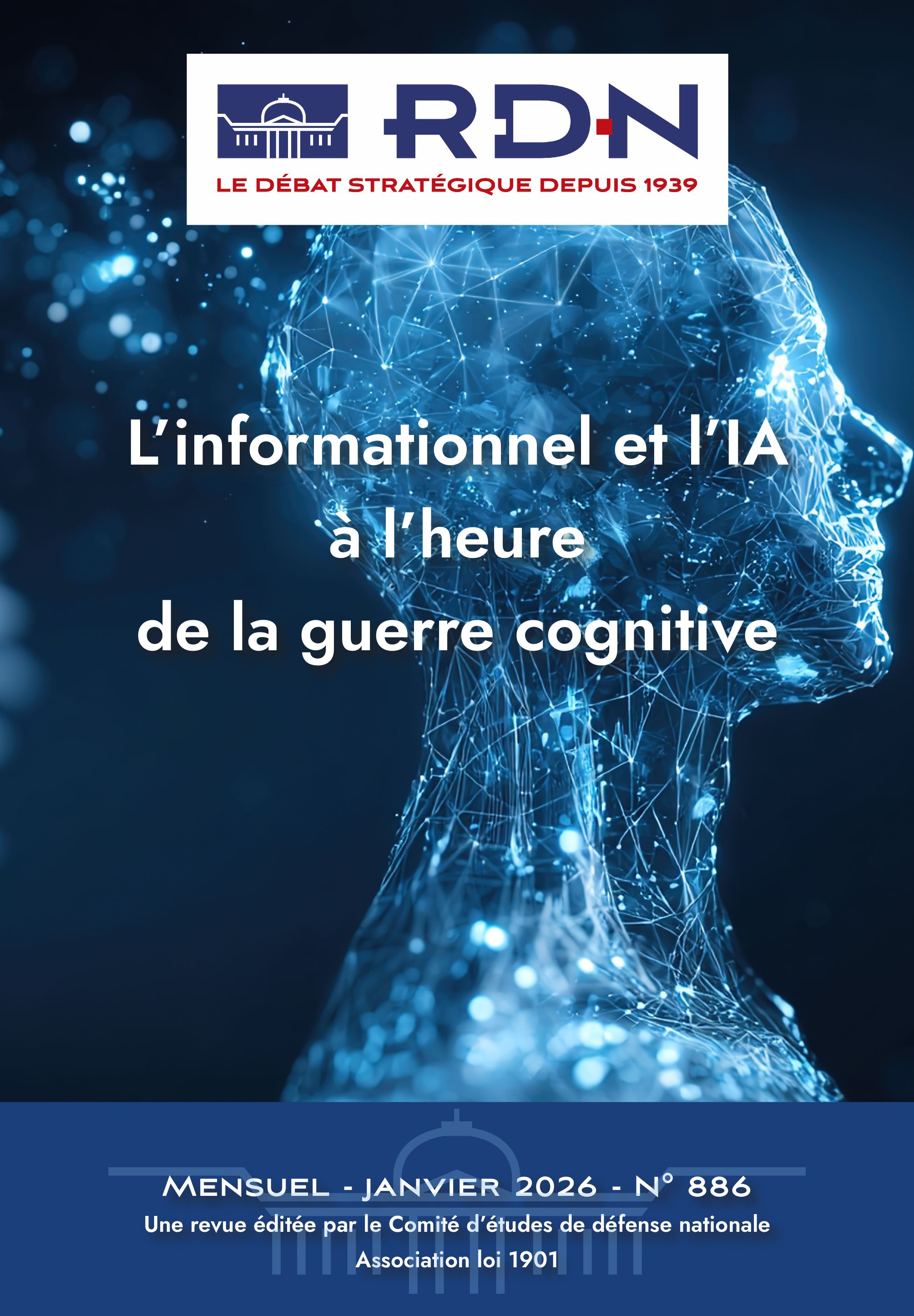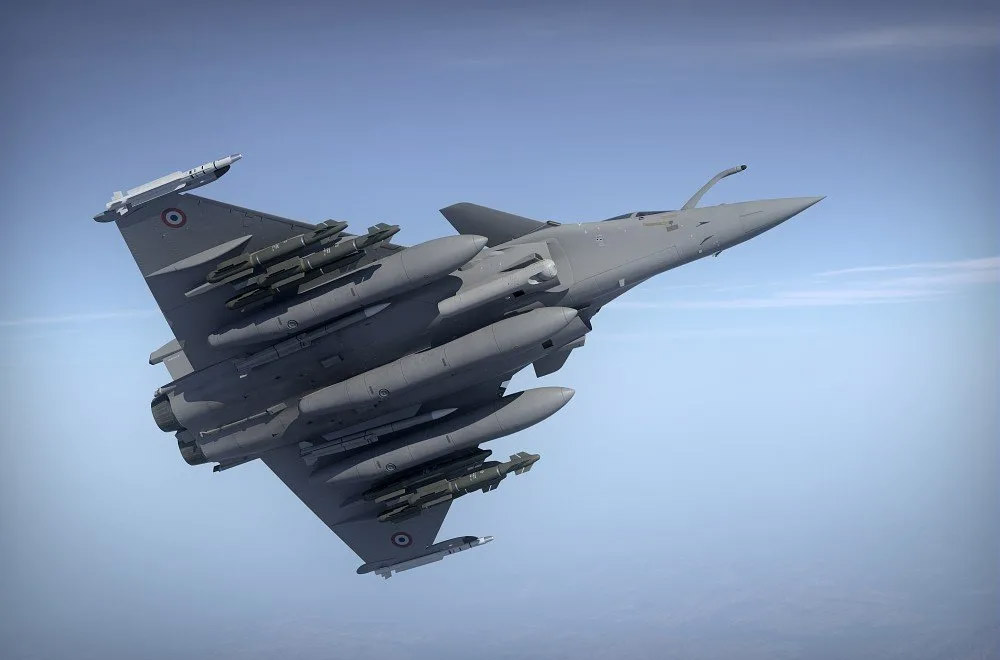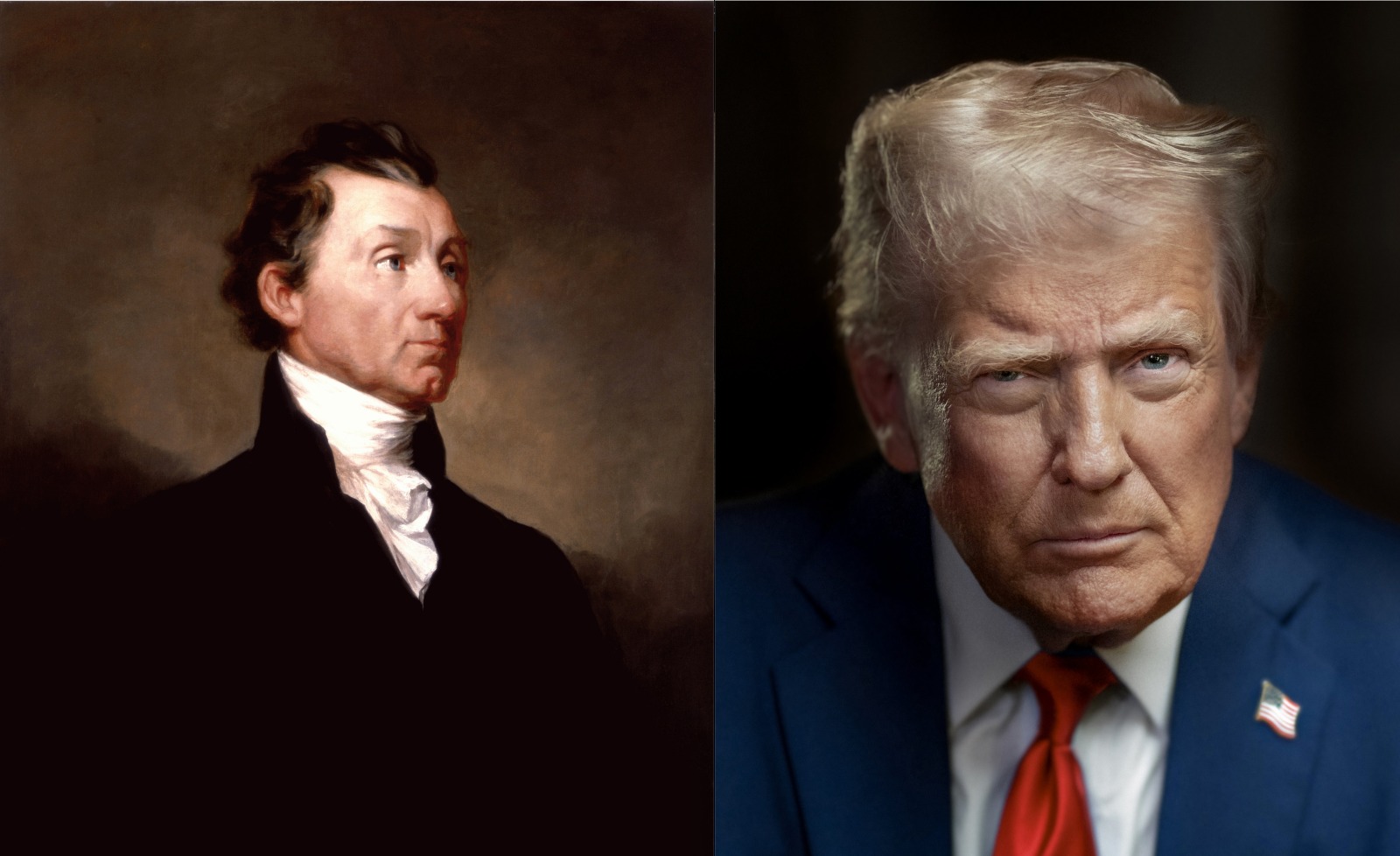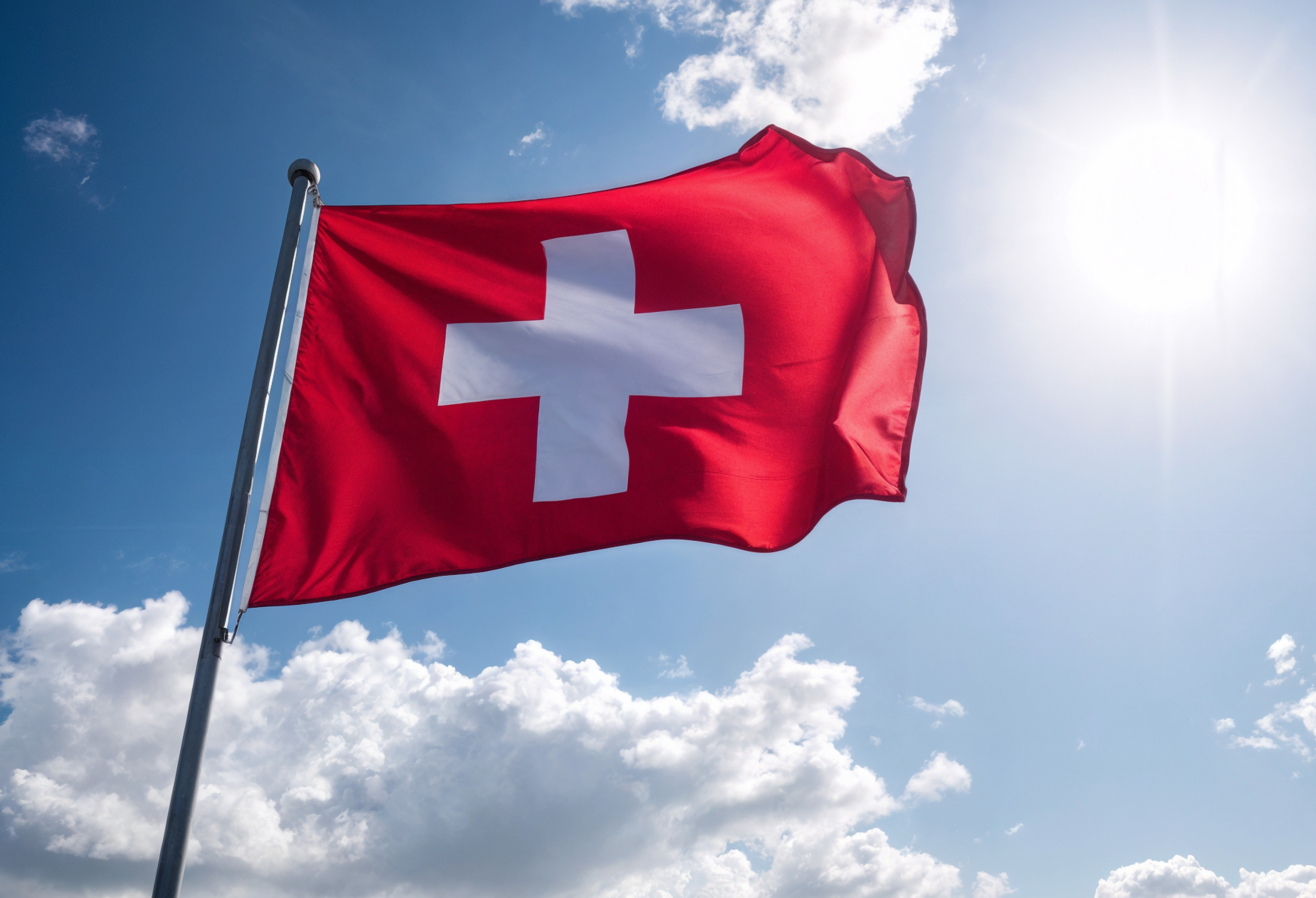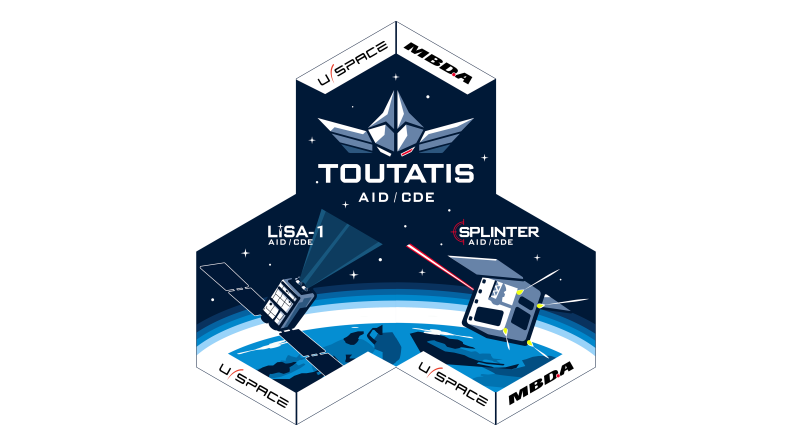Edition anglaise
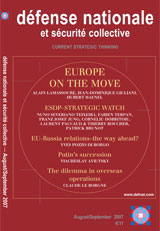
Aug/Sept 2007 - n° 700
The simplified treaty and the relaunching of Europe - Alain Lamassoure
The agreement reached by the European Council on 22 June is a huge diplomatic success for Angela Merkel and Nicolas Sarkozy. Developed from the ‘simplified treaty’ proposed by the UMP candidate, the ‘re-form treaty’ reconciles Europe’s ‘yes’ and ‘no’ voters. On the international stage, the Union will at last have the wherewithal to act as a major player. The European ‘spirit’ that was in the air in Brussels gives some grounds for optimism about the political will of the current top leaders to make use of the political tool they have forged.
Really good news - Jean-Dominique Giuliani
Following the European Council of 21 and 22 June 2007, Jean-Dominique Giuliani, President of the Robert Schuman Foundation, gives his reactions.(www.jd-giuliani.eu).
Power issues in the European Union - Hubert Haenel
This article on the interplay of power bases within the European Un-ion was written, on the basis of the conference held on 23 January 2007, by Senator Hubert Haenel for a working breakfast organised by the forecasting company Société internationale des conseillers de synthèse.
The arguments for European defence - Nuno Severiano Teixeira
After listing the progress of European construction, in particular the emergence of a security and defence strategy, Portugal’s Minister for Defence Nuno Severiano Teixeira sets out the priorities for his country’s EU presidency–CFSP/ESDP–stressing that, to move forward, the EU must shoulder its responsibilities and develop its military dimension.
European Security and Defence Policy in the first half of 2007 - Fabien Terpan
In the first half of 2007, the European Union launched a new ESDP operation in Afghanistan, while another was being prepared in Kosovo. Much self-analysis has been carried out in the area of capabilities but also of operational matters. ESDP has been in place for several years, giving observers, and above all actors, the perspective necessary to draw some initial lessons from past experience. New areas are opening up, including that of space policy. The European Defence Agency is emerging as the driving force of a pragmatic and practical strengthening of ESDP, although political will expressed at the highest level remains essential. The unblocking of the European unification process by the June 2007 European Council could have positive effects on ESDP, although it has always continued to make progress.
Concept for a modern security policy - Franz Josef Jung (dr.)
The challenges that security policy must confront in the twenty-first century are multifaceted. In its 2006 White Paper (Weißbuch) the Federal Government presents Germany’s policy on the future of the Bundeswehrin the form of the concept of networked security. On the one hand this policy is based on the idea that today security depends not only on military factors, but also on social, economic, ecological and cultural conditions. On the other, it recognises that security can-not be guaranteed either at a purely national level or by armed forces alone.
Athena: from paradox to reality - Laurent Paccaud, Thierry Boucher
The mechanism for managing the common costs of EU operations having military or defence implications is known as Athena. Yet that mechanism is based on a paradox, since on the one hand the Treaty on European Union proscribes any Community military funding, yet on the other EU military interventions are now a reality. This state of affairs has forced the Council to create a completely new ad hoc arrangement, one that has presented a number of difficulties but also a great opportunity, since it has proved adaptable to the specific needs of each operation in terms of flexibility and reactivity.
The Romanian viewpoint on CFSP/ESPD - Corneliu Dobritoiu
One of the most dynamic areas of the European project today, the security and defence component has developed impressively since its establishment, particularly during the last five years. Launched following the Helsinki European Council, European Security and Defence Policy has gradually changed in scope, becoming instrumental in enhancing Europe’s role in the world. From the very beginning, Romania has been involved in the process of developing this initiative. That contribution has concerned its three main components: politico-strategic, institutional, capabilities and operations. Involvement in the major ESDP activities, including engagement with forces and capabilities, as well as participation in EU-led operations, have demonstrated Romania’s attachment to a dynamic Union. Moreover, these endeavours underline the special attention the country has paid to honouring its commitments.
Europen counter-extremism measures - Patrick Brunot
Text of a lecture given on 19 April 2007 at the annual conference on extremism at the University of Veliki Novgorod, Russian Federation.
EU-Russia relations-the way ahead? - Yves Pozzo di Borgo
This article takes into account recent events, in particular the Samara and G8 summits, covered in a report on relations between the European Union and Russia by the French Senate’s delegation to the EU; available (in French) at www.senat.fr/noticerap/2006/r06-307-notice.html.
Baltic states, NATO and ESDP - Matthieu Chillaud
The strategy of the Baltic States led brilliantly, in quick succession, to membership of both NATO and the EU. Yet that resulted more from questions of identity than from real strategic reflection. NATO, and therefore the United States as a counterweight to Russia, is seen in the Baltic States as the organisation best placed to provide military security. The EU’s security and defence policy is regarded as having only a minimal strategic role.
Analysis of the first targeted attack on a nation's information systems - Laurence Ifrah
In April 2007 Estonia was subjected to massive attacks directed at its web servers. The international community became aware of the vulnerability of information systems, whose architecture and maintenance do not provide for counter-offensives or protection in the event of such attacks. The proliferation of offensive tools, available on the Internet at little cost, means that attacks can be made anonymously and with complete impunity.
Kosovo: caught between concepts and international power politics - Arta Seiti
After an analysis of UN Security Council Resolution 1244 and the ‘Ahtisaari solution’ concerning the completely incompatible positions of the Serbs and Albanian Kosovars, the author takes the view that Europe is standing helplessly by while Kosovo is held hostage to the new antagonism between the United States and Russia.
Putin's succession - Viatcheslav Avioutskii
The March 2008 presidential election in Russia could see a change. President Vladimir Putin is apparently organising his succession in the shape of the two strongmen of his regime–Sergei Ivanov and Dmitry Medvedev, who represent two clans in the Kremin, the silovikifrom the FSB and the liberal centrists respectively. Yet it cannot be ruled out that, despite everything, Putin becomes his own successor under pressure from his entourage and a broadly favourable public.
The necessary reform of French defence policy - Nicolas Ciaravola
The 2007 elections showed a willingness by the French people to make a break with their model of society dating from May 1968. Since that date, defence policy has been stamped with pacifist ideology. Redrafting the defence White Paper is on the agenda: it will be the chance to make this break a reality by, for example, defining the terrorist threat more pragmatically and redefining the international legal framework for intervention of France’s armed forces.
The dilemma in overseas operations - Claude Le Borgne
There is a new debate on overseas operations in which France’s armed forces participate. Iraq, from which France is absent, is a model of what to avoid. Afghanistan, where France is present, is becoming like Iraq. Elsewhere, it depends. So, what should be done?
The obscure clarity of military ethics - Gilles Roque (de la)
War leads to an overthrowing of points of reference and puts the relationship between morals and action at the heart of the profession of arms. Civil society is evolving, greatly modifying or even abandoning the hierarchy of values. There has been renewed interest on the question of ethics within France’s armed forces, and many articles have been published. Today just as much as in the past, consciences, which concern culture, reflection and meditation, have to be reawakened. The military leader faced with issues of conscience will have to find the answers within himself.
Multinational experiments in crisis resolution - Éric Mongnot
Modern crises are more complex and more difficult to comprehend. Purely military responses cannot be an effective long-term solution. Only an overall approach to crisis resolution enables their root causes, declared or latent, to be tackled. Most countries that are major players in crisis resolution around the world attempt to define methods, procedures or organisations to achieve this comprehensive approach. USJFCOM, the US command in charge of transformation, is organising multinational experiments to test concrete solutions to real cases. France, which is participating in this, is in charge of the development of a politico-strategic interministerial and international planning guide.
Franco-American mutual perceptions - French-American Foundation - France
In June 2007 the French-American Foundation -France, in partnership with the Senate, launched a new edition of its public opinion poll ‘Regards croisés’ on the perceptions that French and Americans have of each other. This poll was initiated in 1981, and has been repeated four times since June 2000, permitting a precise analysis of the changes of attitudes in the two countries over long periods of time. The main results of this year’s poll are given here.

